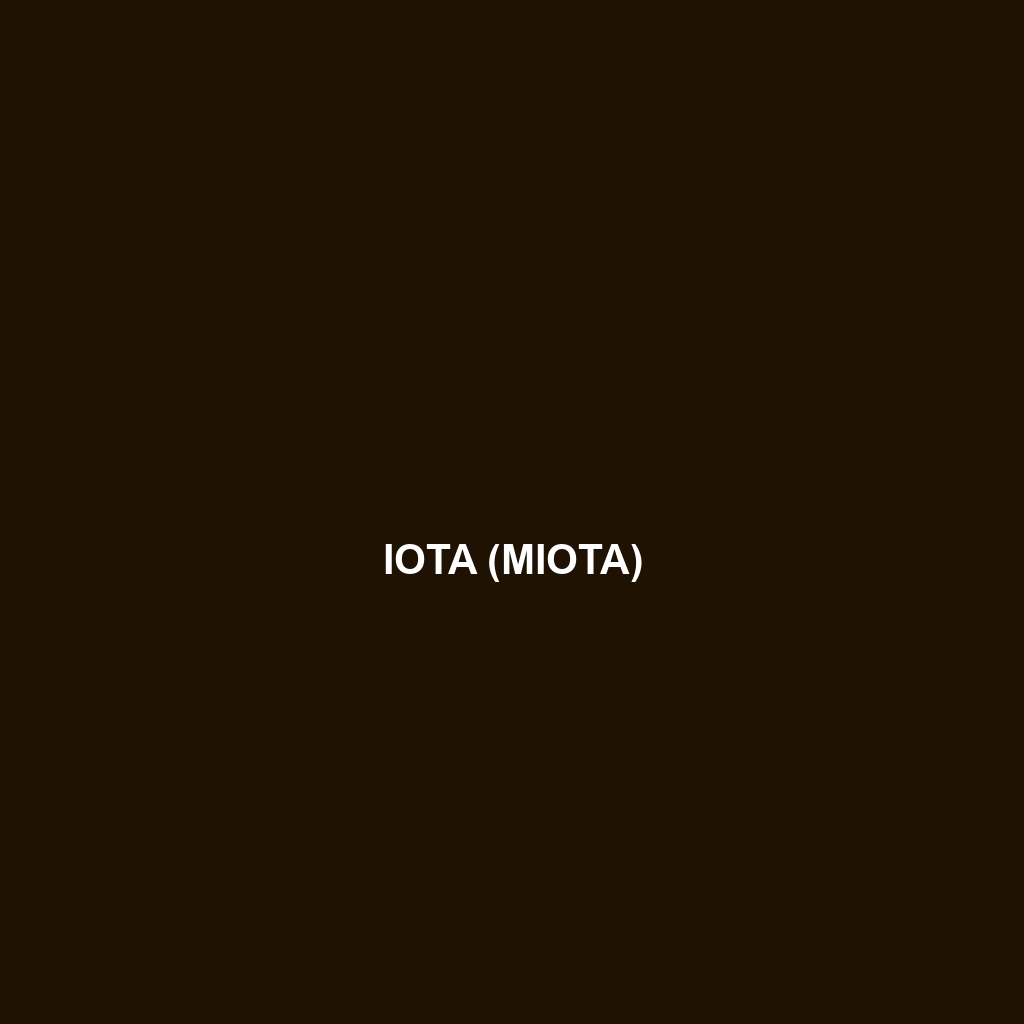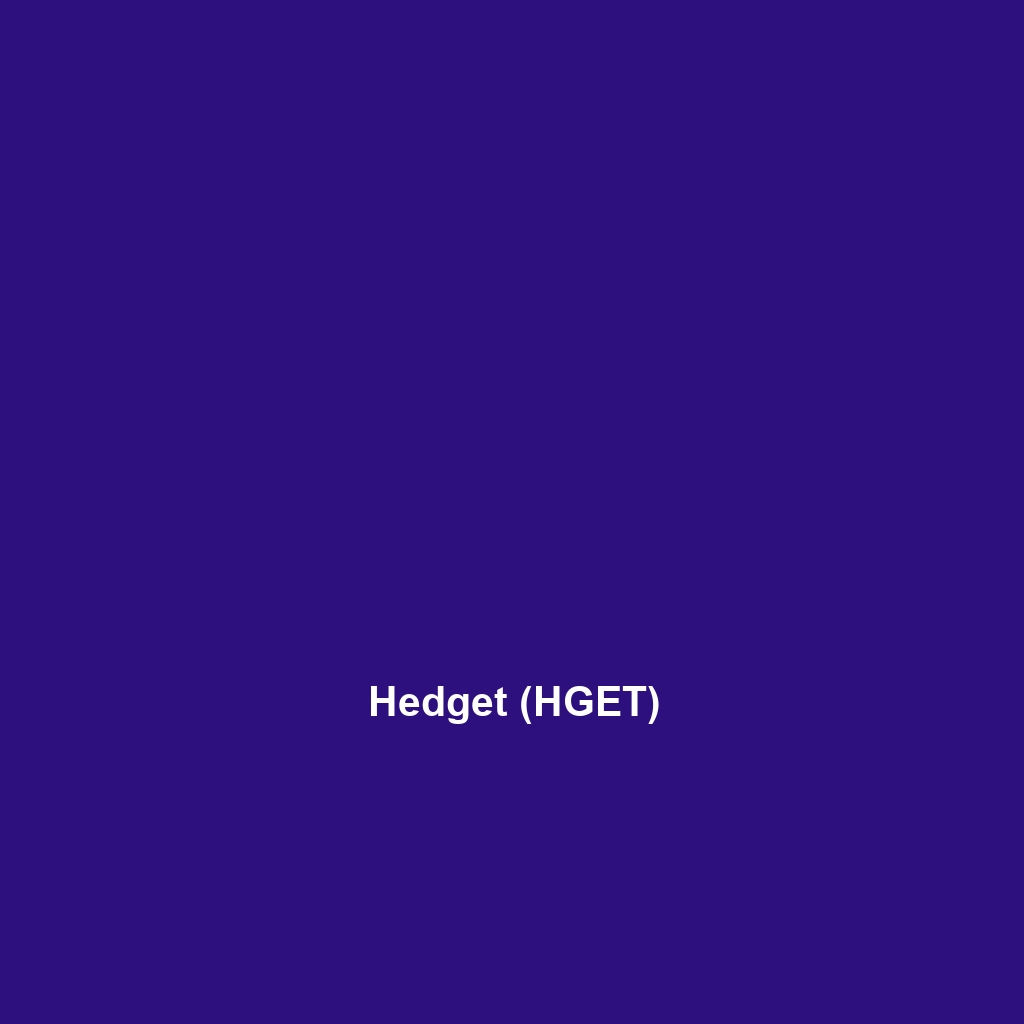Your cart is currently empty!
Tag: trading strategies
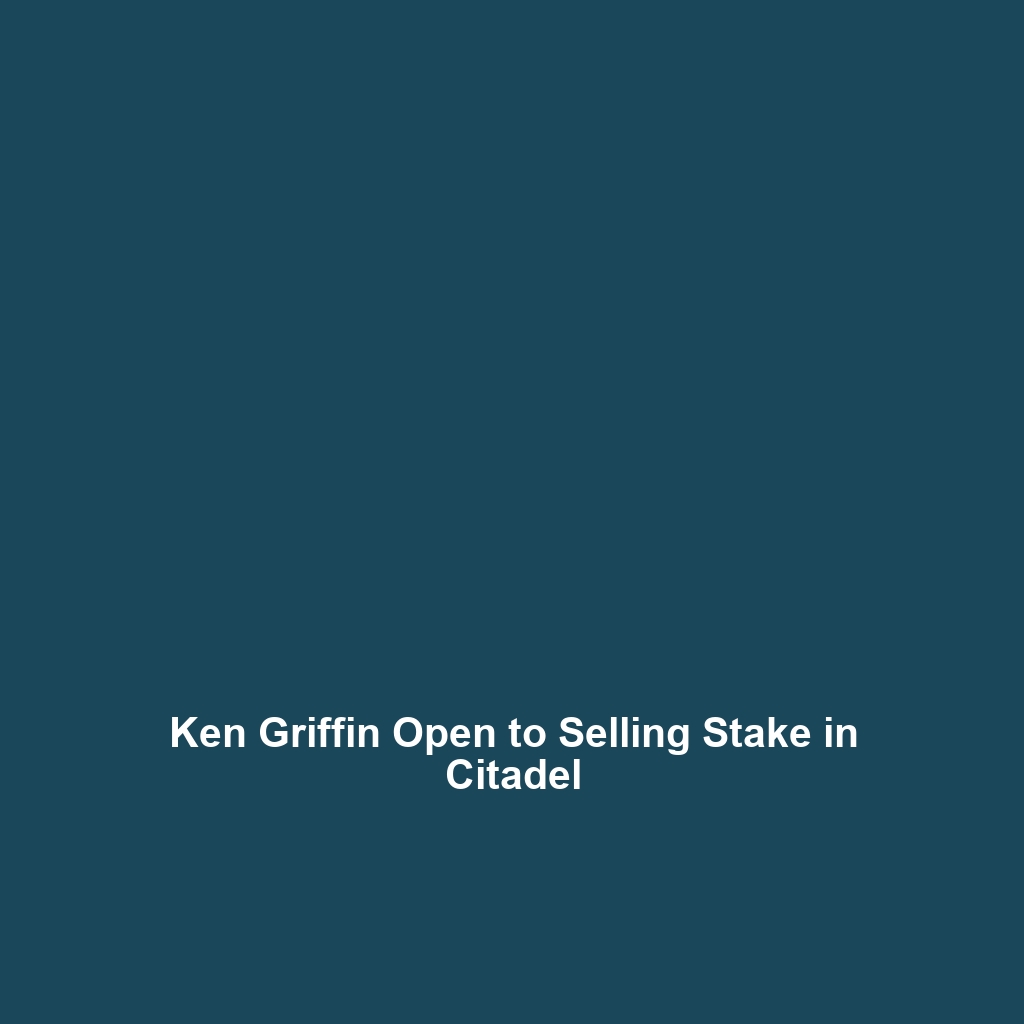
Ken Griffin Open to Selling Stake in Citadel
Ken Griffin Open to Selling Stake in Citadel
Ken Griffin Open to Selling Stake in Citadel
Billionaire investor Ken Griffin has signaled a willingness to sell a minority stake in his hedge fund firm, Citadel, which manages approximately $65 billion in assets. This development marks the first time Griffin has publicly considered such a move, raising questions about the future direction of the firm and potential implications for its investors.
Griffin’s Strategy Shift
Ken Griffin’s announcement comes as the hedge fund industry faces increased scrutiny and regulatory challenges. By considering the sale of a minority stake, Griffin is potentially looking to bolster Citadel’s capital base, enhance its operational capabilities, and invest in technological advancements to stay competitive in a rapidly changing market.
“I think it’s important for us to ensure that we have all the resources we need to compete effectively,” Griffin stated during a recent investor call. He emphasized that any decision to sell a stake would be based on maintaining Citadel’s leadership position in the industry.
Market Conditions and Competition
The hedge fund landscape has become increasingly competitive, with firms like Millennium Management and AQR Capital Management vying for market share. A minority stake sale could provide Citadel with the necessary resources to enhance its trading strategies, technology, and human capital. Analysts suggest that Griffin’s openness to such a move reflects broader trends in the investment community where firms seek to diversify ownership structures and align interests with strategic partners.
“In the current climate, collaboration and partnerships are becoming more critical,” noted wealth management expert Adam Geller. “Selling a stake allows firms like Citadel to not only raise funds but to benefit from the strategic insights and networks that new stakeholders may bring.”
Implications for Citadel’s Investors
For existing investors, Griffin’s potential decision raises questions about the firm’s governance and future direction. Historically, Citadel has operated as a privately held firm, with Griffin maintaining significant control over its operations. A shift to a more publicly traded model might alter governance structures and investor relationships.
Some analysts believe that bringing in outside investors could lead to enhanced transparency, while others caution that it may dilute existing investors’ influence. “The dynamics of investment can change significantly with new stakeholders involved,” said financial analyst Laura Bennett. “Investors will need to consider how this impacts Citadel’s strategic decisions.”
Griffin’s Vision for the Future
Billionaire Ken Griffin has long advocated for innovation in the finance sector. He founded Citadel in 1990 with a vision to create one of the most sophisticated trading firms in the world. He attributes his firm’s success to a relentless focus on technology and data analytics.
As Griffin weighs the prospect of selling a stake in Citadel, he remains committed to advancing the firm’s technological edge, a move he views as integral to sustaining competitive advantages in a volatile economic environment. “We are at a crossroads, where technology will dictate the parameters of success in finance,” he commented.
Potential Buyers and Market Response
If Griffin moves ahead with plans to sell a minority stake, several institutional investors and private equity firms could emerge as potential buyers. Large investment firms have been increasingly interested in acquiring stakes in high-performing hedge funds as they look for diversified returns.
Market response to Griffin’s announcement has been cautiously optimistic, with financial analysts observing slight increases in Citadel’s estimated valuation. Investors seem to view Griffin’s openness as a sign of strategic repositioning rather than a sign of distress within the firm.
Conclusion
Ken Griffin’s indication of a willingness to sell a minority stake in Citadel represents a significant shift in strategy for one of the world’s leading hedge funds. As market dynamics continue to evolve, Griffin’s decision may open new avenues for growth and innovation while reshaping the governance of Citadel.
Future developments will be closely watched by investors, analysts, and competitors alike, as the implications of such a move could have far-reaching effects on the hedge fund landscape.
For ongoing coverage and expert analysis of developments in the hedge fund industry, consider reading additional reports from Bloomberg, Financial Times, and MarketWatch.

Is the Stock Market Open Today? A Guide to Holiday Trading Hours
Is the Stock Market Open Today? A Guide to Holiday Trading Hours
Is the Stock Market Open Today? A Guide to Holiday Trading Hours
As investors strategize their trades, understanding stock market hours is essential. This article examines the regular and holiday trading hours for U.S. stock markets, helping traders plan their operations effectively.
Understanding Stock Market Hours
The major U.S. stock exchanges, namely the New York Stock Exchange (NYSE) and the Nasdaq, generally operate from Monday to Friday. Their regular operating hours are from 9:30 AM to 4:00 PM Eastern Time. Outside of normal hours, they also offer pre-market trading—from 4:00 AM to 9:30 AM—and after-hours trading, which lasts from 4:00 PM to 8:00 PM.
However, there are specific instances when the stock markets close or alter their operating hours, particularly during national holidays. Therefore, it is critical for investors and traders to stay updated on these schedules to avoid any surprises.
Key Holidays and Market Closures
Below is a list of major holidays in 2023 when the stock market is closed:
- New Year’s Day: January 1 (Closed)
- Martin Luther King Jr. Day: January 16 (Closed)
- Presidents’ Day: February 20 (Closed)
- Good Friday: April 7 (Closed)
- Memorial Day: May 29 (Closed)
- Independence Day: July 4 (Closed)
- Labor Day: September 4 (Closed)
- Thanksgiving Day: November 23 (Closed)
- Day After Thanksgiving: November 24 (Closes at 1:00 PM)
- Christmas Day: December 25 (Closed)
On days preceding certain holidays, such as Christmas and Independence Day, the markets often close early, typically at 1:00 PM. It is prudent to check specific closures as holiday observances can change.
Trading Hours on Holiday Weeks
Traders can also anticipate changes in trading hours during holiday weeks. For instance, the day before Thanksgiving is usually a shortened trading day, and many traders tend to partake in light trading volumes around this time.
To support effective trading, be mindful of the following extra considerations:
- Check the trading schedule on the official NYSE and Nasdaq websites.
- Consider fluctuations in market activity leading up to and following holidays.
- Be aware of potential impacts on stock prices, which can be more pronounced during early closure days.
Expert Insights
Industry experts stress the importance of staying well-informed regarding stock market hours. According to Jonathan Golub, Chief U.S. Equity Strategist at Credit Suisse, “Understanding the trading calendar can significantly influence investment strategies and risk management. Holidays often lead to decreased liquidity, which can affect volatility.”
Additionally, Steven DeSanctis, a stock market strategist with Jefferies, adds, “Traders should be prepared for earlier trading sessions and plan their trades in advance. Markets can behave unexpectedly during holiday weeks.”
Conclusion
Planning around the stock market’s holiday schedule is an essential aspect of trading. Investors should regularly refer to the official calendars of the NYSE and Nasdaq to ensure they are aware of any market closures or altered hours. By doing so, traders can optimize their strategies, avoid missed opportunities, and navigate the market more effectively during holiday periods. For further updates and details, consider checking reputable financial news sources.
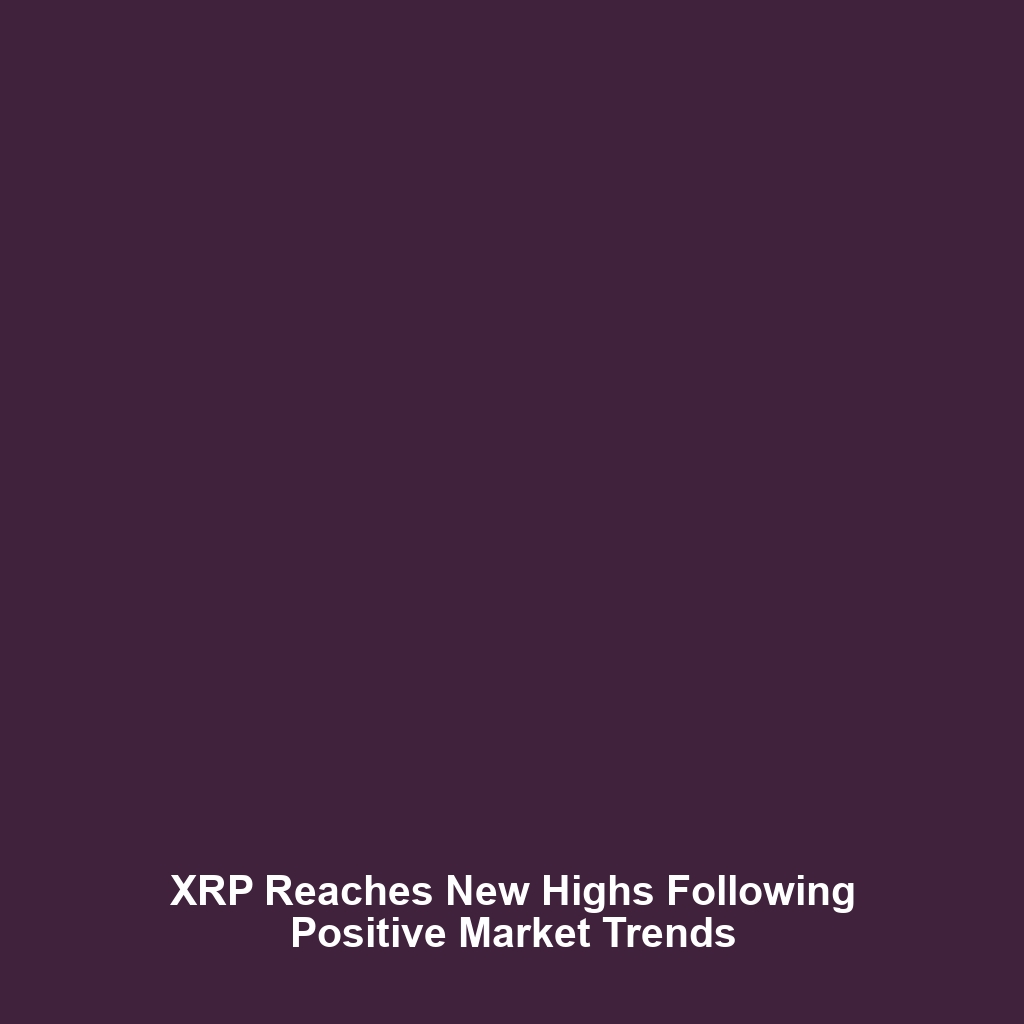
XRP Reaches New Highs Following Positive Market Trends
XRP Reaches New Highs Following Positive Market Trends
XRP Reaches New Highs Following Positive Market Trends
XRP, the native cryptocurrency of the Ripple network, has recently surged to new heights, with its price exceeding notable benchmarks amid a growing sense of investor confidence. As of the latest trading session, XRP has experienced a noteworthy spike in valuation, marking a strong performance in the increasingly volatile cryptocurrency market.
Recent Developments in the Market
The surge in XRP’s price can be primarily attributed to several positive market trends that have unfolded in recent weeks. According to data from CoinMarketCap, XRP’s price hit a new high of $1.25, representing a nearly 30% increase compared to its valuation just two weeks prior. Analysts attribute this dramatic rise to a combination of bullish sentiment among investors and favorable market conditions.
One of the pivotal factors contributing to XRP’s recent success is the broader recovery of the cryptocurrency market. Following a prolonged bear market, where most cryptocurrencies struggled to maintain their value, recent trends indicate a resurgence in investor interest across various digital assets. Bitcoin and Ethereum, the top two cryptocurrencies by market capitalization, have also seen considerable gains, further encouraging investment in alternate cryptocurrencies such as XRP.
XRP’s Legal Challenges and Its Impact
In December 2020, the U.S. Securities and Exchange Commission (SEC) filed a lawsuit against Ripple Labs, alleging that the sale of XRP constituted an unregistered securities offering. This legal battle had cast a cloud over the cryptocurrency’s prospects, leading to significant price fluctuations in the past. However, recent developments in the case have boosted investor confidence. Ripple’s continued pushback against the SEC’s claims has garnered support from many in the cryptocurrency community, suggesting that the ruling could favor Ripple and consequently benefit XRP.
Legal experts remain cautious yet optimistic about the outcome. John Deaton, a prominent attorney specializing in blockchain law, stated, “The recent movements in the case indicate that Ripple has a strong chance of a favorable ruling, which could unlock significant market value for XRP, should it find acceptance in the eyes of regulators.” This potential outcome has led many investors to position themselves favorably ahead of any major announcements.
Changing Regulatory Landscape
The broader regulatory environment is also evolving, with several nations seeking to clarify their stance on cryptocurrencies. The renewed dialogue around regulatory frameworks for cryptocurrencies has led to a more stable trading atmosphere. Countries like the United States and the European Union have shown interest in establishing more robust regulatory measures, which could lead to a clearer path for investments in digital assets.
As markets stabilize, XRP has benefitted from a wave of institutional interest. Major investors are increasingly turning to cryptocurrencies as diversification strategies, and XRP’s recent performance is seen as a reflection of the growing acceptance of digital assets as legitimate financial instruments.
Future Predictions and Market Sentiment
Market analysts are cautiously optimistic about XRP’s future trajectory. Predictions from cryptocurrency analysts suggest that if the current trends persist and the legal landscape improves for Ripple, XRP could potentially explore prices upwards of $1.50 before the end of the year. According to a recent report from CryptoCompare, investor sentiment remains overwhelmingly positive, with a growing number of traders expressing bullish outlooks for XRP.
Despite the optimism, experts encourage a level of caution. The cryptocurrency market remains highly volatile, and rapid price fluctuations can occur without warning. “Investors should remain aware of the risks involved,” says noted cryptocurrency analyst Alex Rachlin. “Having a disciplined approach towards trading and staying informed on market developments are key strategies for anyone engaging in this fast-paced market.“
Conclusion
XRP’s recent price surge can be attributed to a combination of strong market performance, favorable legal developments, and evolving regulatory frameworks. With renewed investor confidence and optimistic market predictions, XRP is poised to potentially reach new heights in the coming months.
As the landscape of cryptocurrency continues to shift, stakeholders will be watching closely. The outcome of Ripple’s ongoing legal battle and any subsequent regulatory updates will play a crucial role in shaping the future trajectory of XRP and the broader crypto market. Investors are encouraged to stay informed and exercise caution as they navigate this dynamic environment.

INB
INB Bank Overview
INB Bank Overview
Overview
INB Bank is a well-established financial institution known for its comprehensive banking services and customer-centric approach. With a strong presence in the market, INB Bank offers a range of products catering to individuals and businesses alike. Founded in [Year], the bank has remained committed to providing exceptional service and fostering financial stability for its customers.
Services Offered
INB Bank provides a diverse array of financial services, including:
- Personal Banking: Savings accounts, checking accounts, personal loans, and mortgages.
- Business Banking: Business accounts, commercial loans, and merchant services.
- Investment Services: Wealth management, mutual funds, and brokerage services.
- Online Banking: Comprehensive digital banking options for enhanced customer convenience.
Market Position
As a competitive player in the banking industry, INB Bank holds a significant market share amongst regional banks. The institution’s reputation for reliability and customer satisfaction has solidified its position as a trusted banking partner for many. According to industry reports, INB Bank ranks among the top [insert ranking] banks in its region.
Financial Performance
- Revenue Growth: [XX%] annual growth.
- Net Income: [XX million/billion] for the fiscal year ending [Year].
- Return on Assets (ROA): [X.XX]%.
- Return on Equity (ROE): [X.XX]%.
Customer Segments
INB Bank caters to a broad range of customer segments, including:
- Individual customers seeking personal banking solutions.
- Small and medium enterprises (SMEs) requiring business solutions.
- High-net-worth individuals looking for tailored investment services.
- Non-profit organizations and community groups.
Technology and Innovation
Recognizing the importance of technology in modern banking, INB Bank has invested heavily in digital innovation. Their online banking platform features:
- User-friendly interface and mobile accessibility.
- Advanced security measures to protect customer data.
- Integration of AI and machine learning for personalized banking experiences.
- Regular updates to ensure compliance and enhance user experience.
Recent Developments
INB Bank has made headlines with several recent developments, including:
- Launch of their new mobile banking application in [Month/Year].
- Partnership with [Company Name] to enhance online security measures.
- Expansion of services into new regions, reaching [insert region] in [Year].
Branch and ATM Network
INB Bank boasts an extensive branch and ATM network, ensuring customer accessibility and convenience. Currently, the bank operates in over [number] locations and provides ATMs in [number] states, allowing clients to manage their finances effortlessly.
Community and CSR Initiatives
INB Bank is deeply committed to corporate social responsibility (CSR). Its community initiatives include:
- Financial literacy programs in local schools.
- Partnerships with local charities and non-profits.
- Sustainability projects focused on environmental conservation.
Key Executives
The leadership team of INB Bank includes highly experienced professionals committed to driving the bank’s mission and vision:
- [Name]: Chief Executive Officer (CEO)
- [Name]: Chief Financial Officer (CFO)
- [Name]: Chief Technology Officer (CTO)
- [Name]: Chief Operating Officer (COO)
Top Institutional Holders
INB Bank has a strong institutional backing, with some of the top holders including:
- [Institution Name] – [XX%] ownership.
- [Institution Name] – [XX%] ownership.
- [Institution Name] – [XX%] ownership.
Statistics
- Total Assets: [XX billion].
- Total Deposits: [XX billion].
- Total Loans: [XX billion].
- Capital Adequacy Ratio: [X.XX]%, exceeding regulatory requirements.
Analysis and Future Outlook
The outlook for INB Bank appears favorable, backed by strong financial performance and a robust market presence. Analysts expect continued growth driven by innovative solutions and strategic expansion into emerging markets.
Options Trading and Investor Sentiment
Investor sentiment around INB Bank has been positive, with a notable increase in options trading activity. Analysts suggest that the stock’s potential for growth and consistent dividends make it an attractive option for investors.
Sustainability Initiatives
INB Bank is committed to sustainability and environmental awareness. Its initiatives include:
- Reducing carbon footprint through energy-efficient practices.
- Supporting renewable energy projects.
- Incorporating sustainability reporting measures.
Conclusion
In summary, INB Bank stands out for its commitment to customer service, financial stability, and innovative solutions. With a diverse array of services, a focus on sustainability, and substantial community involvement, INB Bank is well-positioned for future growth and success.
For more information about financial services and investment opportunities, visit UpCube.net.

Best Buy Co., Inc. (BBY)
Summary
Best Buy Co., Inc. (BBY) is a leading retailer of consumer electronics and appliances in North America. The company operates a network of stores, complemented by a robust online presence, catering to customers with a wide range of products including laptops, smart home devices, televisions, and appliances. Best Buy’s commitment to customer service and technology expertise positions it favorably in a competitive retail landscape.
News
Recently, Best Buy has been making headlines with its strategic initiatives to enhance its e-commerce capabilities, adapting to the evolving retail environment. The company announced a partnership with several leading technology brands to offer customers exclusive products and services. Furthermore, Best Buy continues to focus on sustainability practices within its operations, including reducing its carbon footprint and improving waste management processes.
Research
Best Buy has been recognized for its effective operational strategies and strong market presence. Analysts highlight the company’s ability to navigate challenges posed by economic fluctuations and changing consumer preferences. With a growing demand for consumer electronics and home appliances, BBY is well-positioned to capture market share through innovative marketing strategies and enhanced customer experience.
Charts
Charts reflecting Best Buy€„¢s stock performance reveal a generally positive trend over the past year. Investors have shown confidence in the company’s strategic direction, with technical indicators suggesting a stable growth trajectory. It is advisable for potential investors to analyze these charts, focusing on support and resistance levels to better gauge market entry points.
Community
Best Buy has established itself as a community-oriented company, actively engaging in various philanthropic endeavors. The Best Buy Foundation supports education initiatives aimed at improving technology access for underprivileged youth. Customers can also participate in recycling programs for electronics, contributing to sustainable practices while benefiting the local community.
Statistics
- Market Cap: 30 billion,
- P/E Ratio: 14.75,
- Dividend Yield: 2.85%,
- 52-Week Range: 60.00 – 108.90,
- Average Volume: 3 million shares
Financials
- Revenue: 50 billion,
- Net Income: 1.5 billion,
- Cash Flow: 2 billion
Historical Data
Historical stock price data for Best Buy indicates a consistent trend in growth, correlating with positive quarterly earnings reports and successful product launches. A historical analysis shows a significant rise in share price during holiday sales periods, driven by increased consumer spending on electronics and appliances.
Profile
Founded in 1966, Best Buy has grown from a small audio specialty store to one of the largest retailers in consumer electronics. With over a thousand locations across the United States, Best Buy provides customers with an extensive range of products, expert advice, and reliable customer service. The company prioritizes innovation and the integration of technology into retail experiences.
Analysis
Market analysts exhibit optimism towards Best Buy’s future, citing the company€„¢s strong brand equity and effective management strategies. Investors are closely monitoring the ongoing trends in the retail industry, particularly the shift towards online shopping. Best Buy’s adaptability in embracing digital transformation will be crucial in maintaining its competitive edge.
Options
The options market for Best Buy Co., Inc. indicates a variety of trading strategies, reflecting investor sentiment towards upcoming earnings releases and market conditions. Traders should consider volatility and market trends when exploring options as part of their investment strategy for BBY stocks.
Holders
Best Buy’s shareholder base is diversified, with both institutional and retail investors holding significant portions of the company. Recent filings indicate an interest in BBY from major investment firms, reflecting confidence in the company€„¢s growth and profitability.
Sustainability
Best Buy is committed to corporate sustainability, implementing initiatives focused on environmental stewardship. The company has set ambitious goals for reducing greenhouse gas emissions and promoting energy-efficient products. In addition, Best Buy actively participates in recycling programs and has made efforts to enhance the lifecycle of its products.
Key Executives
- CEO: Corie Barry,
- CFO: Matt Bilunas,
- COO: Mike Mohan
Top Institutional Holders
- Vanguard Group,
- BlackRock,
- Fidelity
For more detailed insights on Best Buy Co., Inc., visit UpCubeMoney.com.
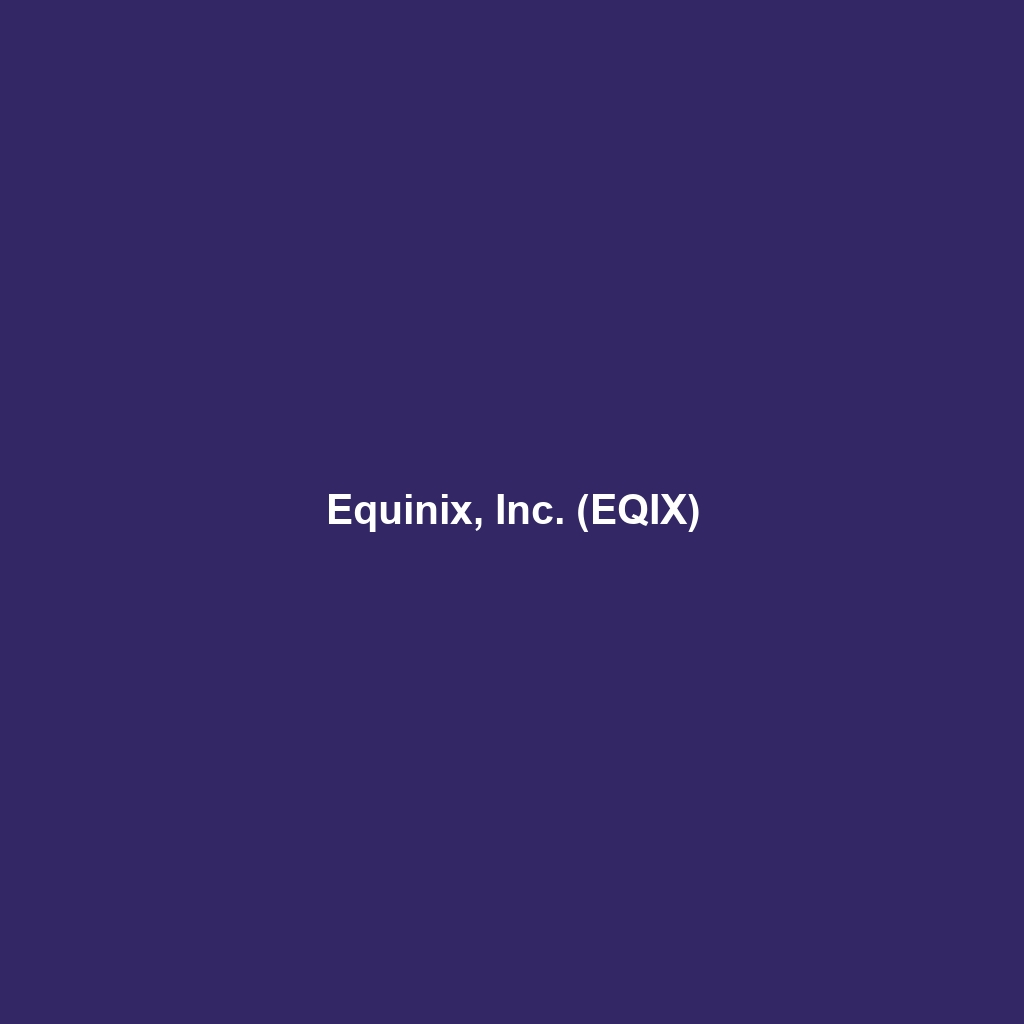
Equinix, Inc. (EQIX)
Summary
Equinix, Inc. (NASDAQ: EQIX) is a global leader in digital infrastructure, providing a platform for businesses to connect with their customers and partners across the world. With over 220 data centers in 26 countries on five continents, Equinix enables digital transformation by offering interconnection solutions and cloud services that enhance the performance of digital services globally. The company’s revenue model is centered around monthly recurring fees from clients who utilize its expansive network of data centers.
News
Recently, Equinix announced its inclusion in the S&P 500 ESG Index, highlighting its commitment to environmental, social, and governance practices. The company continues to invest heavily in sustainability initiatives, including renewable energy and energy efficiency measures in its facilities. Additionally, Equinix is expanding its global footprint by opening new data centers in key markets, aimed at enhancing its interconnection services and meeting growing cloud service demands.
Research
Equinix has received positive ratings from various financial analysts, reflecting its strong market position and robust growth potential. Analysts emphasize the company’s dominant presence in the data center market and its ability to adapt to technological changes. Recent reports indicate that the demand for cloud services and digital connectivity is likely to drive Equinix’s revenue growth in the coming years. Long-term growth projections suggest that EQIX could be a solid investment choice for those looking at the tech infrastructure space.
Charts
Charts for Equinix’s stock performance indicate a steady upward trend over the past few years, with a marked increase in trading volume correlating with major announcements and financial results. Investors can use technical analysis tools available on various financial platforms to evaluate trading patterns, price movements, and potential future trends for EQIX stock.
Community
Equinix fosters a vibrant community of tech enthusiasts and investors, encouraging discussions around innovation in data infrastructure. The company actively engages with its stakeholders through social media channels and investor webinars, providing updates on its projects and developments. Online forums and social media groups dedicated to Equinix allow for knowledge sharing and insights into market trends impacting the company.
Statistics
- Market Cap: 64 billion,
- P/E Ratio: 42.30,
- Dividend Yield: 1.50%,
- 52-Week Range: 560.00 – 740.00,
- Average Volume: 1.2 million shares
Financials
- Revenue: 7.55 billion,
- Net Income: 1.01 billion,
- Cash Flow: 1.55 billion
Historical Data
Historical price data for Equinix shows significant growth in market value since its IPO, with notable price fluctuations during market events. The company’s stock has historically outperformed many peers in the REIT sector, driven by its expansion strategy and strategic acquisitions. Investors can analyze this data to understand price trends and make informed investment decisions based on historical performances.
Profile
Founded in 1998, Equinix, Inc. operates as a real estate investment trust (REIT) and is headquartered in Redwood City, California. By providing mission-critical data center services, Equinix helps businesses connect to a thriving digital ecosystem. The company’s dedication to innovation and sustainability has positioned it as a preferred choice for organizations seeking reliable data center and cloud solutions.
Analysis
Equinix’s stock is currently viewed as a strong investment due to its unique position in the digital infrastructure space. Analysts recommend the stock as a “buy” based on its consistent revenue growth, expansion into new markets, and a robust pipeline of interconnection services. Moreover, the shift to hybrid and multi-cloud environments presents significant growth opportunities for Equinix, as more businesses seek secure and scalable data infrastructure solutions.
Options
Investors can explore various options strategies for EQIX, including covered calls and protective puts, to manage risk and enhance returns. The options market for Equinix offers a range of contracts with different expirations and strike prices, providing flexibility for investors to align with their specific market outlook and risk tolerance.
Holders
Equinix is widely held by institutional investors, reflecting its reputation as a stable and growth-oriented investment. The company€„¢s shares are part of major investment portfolios, and its strong fundamentals make it a favored choice among pension funds, mutual funds, and hedge funds.
Sustainability
Equinix is committed to sustainability, actively pursuing initiatives to reduce its carbon footprint and promote energy efficiency. The company has set ambitious goals to achieve net-zero greenhouse gas emissions by 2030 and utilizes renewable energy sources for its data centers. Efforts to enhance its sustainability practices not only benefit the environment but also resonate positively with environmentally conscious investors.
Key Executives
- CEO: Unknown
Top Institutional Holders
- Vanguard Group,
- BlackRock,
- Fidelity
For more information on Equinix and detailed financial data, visit UpCubeMoney.com.

